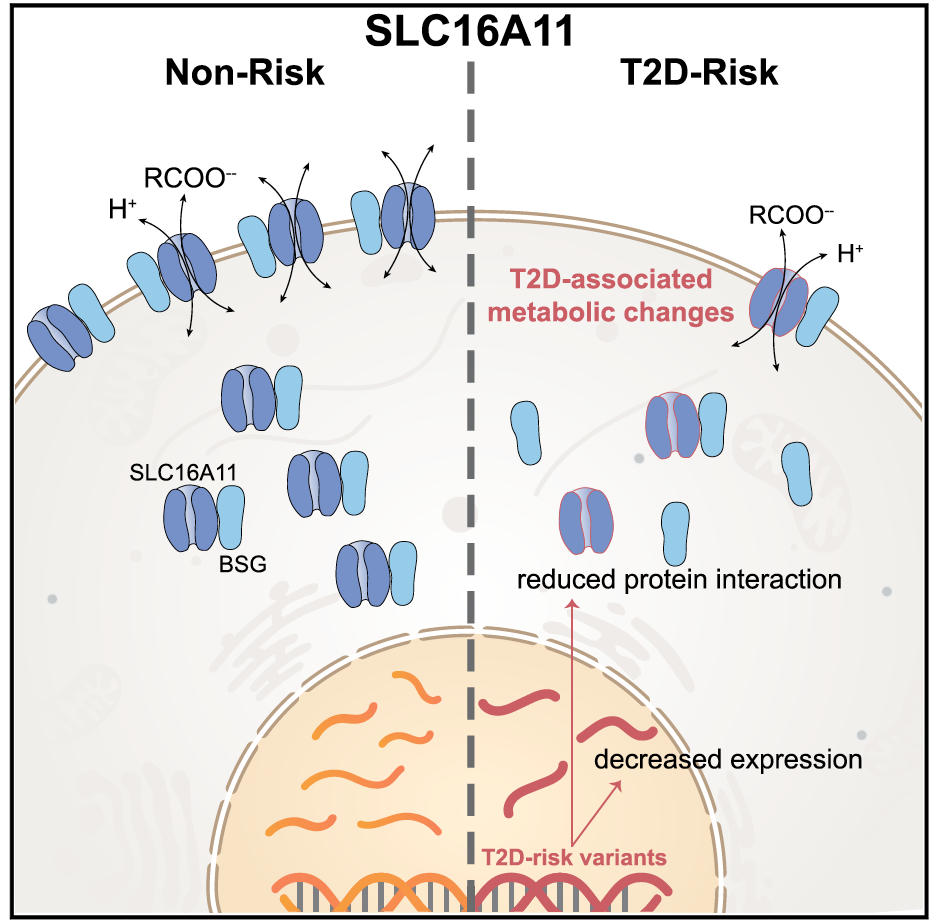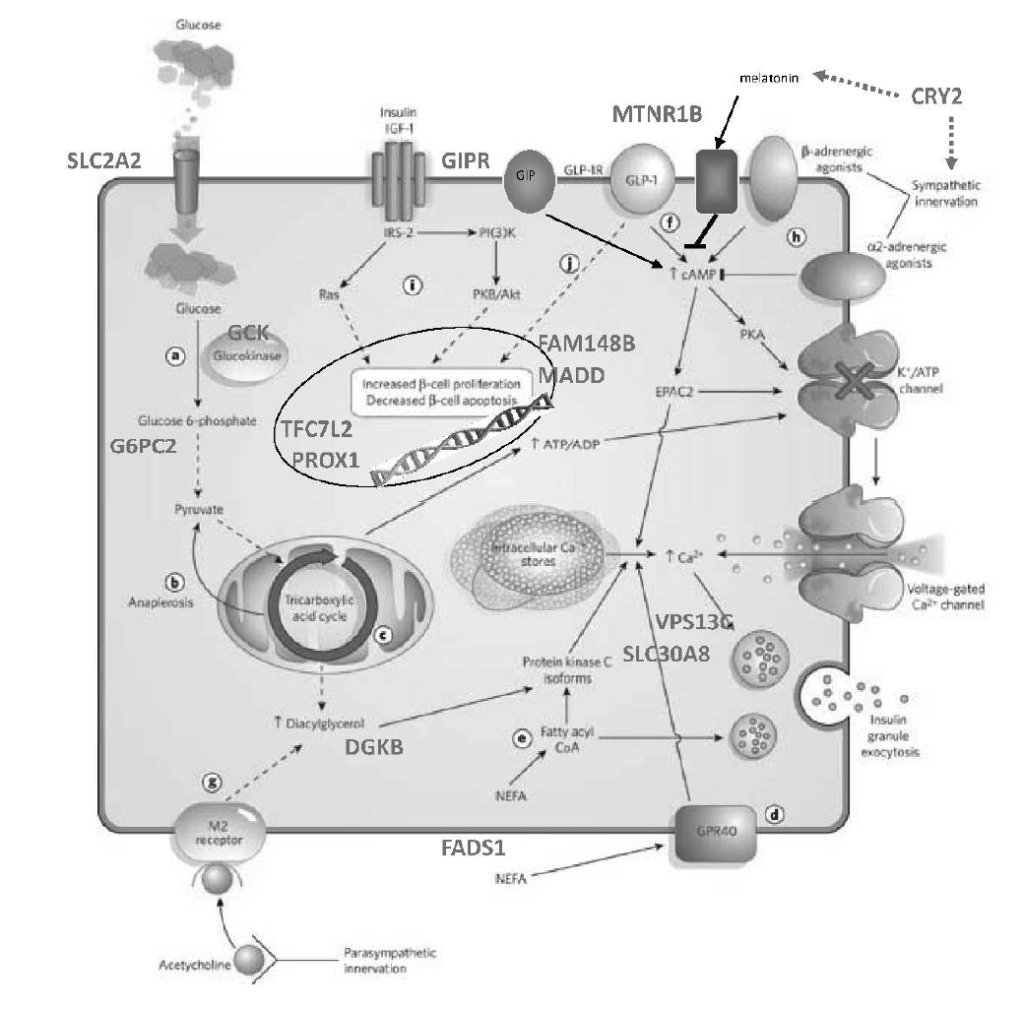
The Diabetes Prevention Program randomized participants at high risk of T2D (based on impaired glucose tolerance, an elevated fasting glucose and overweight) to placebo, metformin, or intensive lifestyle modification. Both the metformin and lifestyle interventions proved effective in preventing or delaying the onset of diabetes [DPP NEJM paper], and these effects were sustained [DPP Lancet …
Read More…
The SIGMA mixed-meal tolerance test study challenges non-diabetic participants with a high-calorie, high-carbohydrate meal reflective of current US dietary patterns, before and after a short course of metformin. Their glycemic, hormonal and metabolomic responses to the dietary and pharmacological perturbations can be studied according to genotype at selected loci. …
Read More…

The Patients with Hyperglycemia Assessed for Response to Medications by Genetics study is a retrospective clinical cohort of several thousand participants with T2D culled from electronic medical record databases where prescription information and glycemic response is available. Volunteers provide a DNA sample and pharmacogenetic assessments of drug response in a real world setting can be …
Read More…

The Study to Understand the Genetics of the Acute Response to Metformin and Glipizide in Humans is a pharmacogenetic resource in which 1,000 volunteers who were naïve to T2D medications received a glipizide challenge and a short course of metformin, after which they underwent an oral glucose tolerance test (OGTT). Their glycemic, hormonal and metabolomic …
Read More…

We have entered a new era in which technological developments coupled with expanded computational power and increased statistical sophistication have enabled the global query of discrete biological axes. Manufacturing advances introduced arrays that could measure mRNA transcript levels or DNA single nucleotide variation comprehensively in a single experiment. A deeper knowledge of the patterns of …
Read More…

Type 2 diabetes (T2D) affects Latinos at twice the rate seen in populations of European descent. We recently identified a risk haplotype spanning SLC16A11 that explains ?20% of the increased T2D prevalence in Mexico. Here, through genetic fine-mapping, we define a set of tightly linked variants likely to contain the causal allele(s). We show that …
Read More…

Patients with established type 2 diabetes display both ?-cell dysfunction and insulin resistance. To define fundamental processes leading to the diabetic state, we examined the relationship between type 2 diabetes risk variants at 37 established susceptibility loci, and indices of proinsulin processing, insulin secretion, and insulin sensitivity. We included data from up to 58,614 nondiabetic …
Read More…
CONTEXT/OBJECTIVE: The variant rs13266634 in SLC30A8, encoding a ?-cell-specific zinc transporter, is associated with type 2 diabetes. We aimed to identify other variants in SLC30A8 that increase diabetes risk and impair ?-cell function, and test whether zinc intake modifies this risk. DESIGN/OUTCOME: We sequenced exons in SLC30A8 in 380 Diabetes Prevention Program (DPP) participants and …
Read More…

OBJECTIVE: Recent genome-wide association studies have revealed loci associated with glucose and insulin-related traits. We aimed to characterize 19 such loci using detailed measures of insulin processing, secretion, and sensitivity to help elucidate their role in regulation of glucose control, insulin secretion and/or action. RESEARCH DESIGN AND METHODS: We investigated associations of loci identified by …
Read More…









